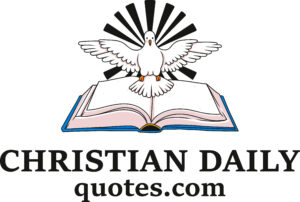As a citizen, it is important to have the best possible information to make critical choices on issues and candidates to support the right to vote. Local and national political decisions and elections require an educated populous, aware of the issues and able to find information that helps with the decision-making process that best reflects their values and commitments. This requires hearing truth from candidates and knowing the truth about the consequences of political action.
The truth has long been elusive in politics. Exaggerated facts. Facts that will not check. Half-truths. Promises not kept. These behaviors were overlooked for years, accepted as a part of politics and received as the expected behavior of politicians who want to win and are interested in amassing power. This economy of truth has become a way of life, with each political debate accompanied by fact checkers and the emergence of websites that track and attempt to correct the barrage of untruths that accompany each political cycle.
There are now too many ways to evade stating the obvious. Disinformation is false information intended to mislead. Disinformation is a lie. Misinformation is unintentional sharing of inaccurate information. Call that passing a lie. Untruth is a lie. To be economical with the truth is to withhold information to deceive and is another fancy way to say a lie was told. Regardless of the fancy words and terms used a lie is just that – an intentional use of information to deceive.
With rumors of AI generated videos and foreign interference in past U.S. elections, finding the truth became harder as social media sites are now littered with information that is not always true. And now, added to the barrage of misinformation and disinformation is the on-going practice of disinformation coming from the White House and the president of the United States. There are now internet sites and news outlets factchecking and making public the truth. Yet, after years of practiced lying with impunity, the president continues to erase the lines between truth and fiction.
Journalist Heidi Taksdal Skjeseth wrote in 2017 about what she calls “the president’s relationship with facts”, noting: “Lies coming from the powerful is nothing new. It is a well-known tactic of authoritarian and populist politicians across the world. All politicians lie sometimes, both on the left and on the right, both establishment politicians and fringe candidates. Bending the truth for political gain is as old as politics itself. Yet the proliferation of lies, the spread of fake news and the so-called post-truth era of today pose serious challenges for journalists and the media industry.”
The current president’s first term was littered with lies, which some of his supporters want to identify as “jokes”, scoff and state what he says “should not be taken seriously,” or support as anti-Washington strategy. In his first term as president, the Washington Post documented 30,573 false or misleading claims. With each lie, there was a normalization and acceptance of lies from a major political figure, even in cases when the facts were well know, and the lie blatant. Each reported untruth was readily accepted by followers of the president for whom it seemed easier to refute the truth than admit the leader of the United States is a liar.
In the 230 days since the inauguration of the 47th president, this president has manipulated the truth, produced his own memes that trample the truth, and made claims that cannot be upheld with facts. He has disparaged foreign countries and their leaders, as well as politicians in the US who do not support his administration and policies. This continues the behavior and attitude of his first presidency. The same lies are being retold and they are being spread by a media that insists on reporting what he said – then naming that what was said was not true.
Fact checking has to be undertaken alongside the commitment to democracy and yet, fact checking is not working because the information is not accessible to all. Bill Adair, founder of PolitiFact, suggested: “We need to be creative in getting [fact-checking] to more people, in using it as data so that we can suppress misinformation.” Adair notes that fact-checking is not only for presidential elections. Instead, senators, members of the house, and governors should be fact checked. Add to that all politicians. Lying is not a partisan effort.
Every major faith tradition, including Christianity, underscores honesty as a value. At a time when institutional religious commitments are questioned and politicians continue to align with and seek support from communities of faith, faith leaders must continue to reject lying as a political strategy and call for truth in democracy.
Categories:
On My Mind Today
United Church of Christ News




